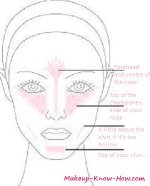Question. What Does 'Organic Make Up' Really Mean?


Organic make up is another branch of lifestyle choices that a lot of people are rightfully gravitating to. A lot of the time, in the quest to live healthier and more sustainable lives, we get all caught up in the hype.
How do you know that there's hype around a product or a movement?
When the end user of whatever it is, has no clear picture about exactly what they're dealing with...
So what we'll be doing is really finding out what it means for a product to be organic, and how to tell if it is what you think it is.
The Term 'Organic Is A Muddy One.
It implies that making a product hasn't had an adverse effect on the balance that exists in nature.
Now that's a tall order when you consider the processes that get a product on the shelf.
There's sourcing the ingredients, methods of putting the ingredients together, packaging, then distribution.
For a organic make up consumer, going extremely organic poses a problem because of all the ingredient research you'll have to do.
Maybe you don't want to put that much time sifting through products, or you're only concerned with having healthy skin. There are many artificial ingredients that are not toxic for your skin. Just as there are many products that are not organic, and will also not hurt your skin.
So here's a guide to follow, considering your level of dedication and motivation in seeking out organic make up. Options for going strictly organic, or just safer...
You Want Organic Make Up And Products That Support Both Your Skin And The Environment...
Any product can be labelled to imply that it's organic if the manufactures want to hype it up.
Sometimes it's true, sometimes its not.
To sift through the real claims and misleading ones, there are two ways.
The first is to look for a certification seal from a reputable agency.
So you know that the product has been tested by someone that knows better than you and me.
The second is to read product labels with some idea of which ingredients should definitely not be there...
Organic Certification
Most countries have their own organizations that certify whether something can be labelled organic or not. If you want to make sure that the makeup you're buying is organic, you can look for it's particular certification credentials.
Here'a list of some certifications worldwide
Here, we'll use the definitions from the United States Department of Agriculture (USDA)'s Natural Organic Program (NOP) to show you to what extent products are regulated.
Organic makeup products aren't bound by any of this, so if they do voluntarily get certified, they get to display the USDA organic Seal.
According to the NOP , they have 4 certification standards for labelling.
- 100% organic”- Meaning the product only has organically produced ingredients excluding water and salt
- organic- Where the product must has at least 95% of organically produced ingredients
- 'Made with organic products'- Where the product must have at least 70% organically produced ingredients
- The last are products with some organically produced ingredients. Then they can specify those on their ingredient list. In this case the product doesn't receive an organic certification seal, but can just list those ingredients as certified by the UDSA.
For makeup Lines, try JuiceBeauty.com
Find Out Which Ingredients Shouldn't Be On Your Label
Now here's the longer winding route. There are so many ingredients out there, organic, and not. Luckily, most organic products will state on the ingredients list when something is organic.
But if there's something on the list that looks too suspect, check it against these lists of ingredients that shouldn't be in an organic product.
Juice BeautyAlso, the Organic Consumers Association have a shorter(less confusing) list of ingredients that you don't want to see on your 100% organic labels.
These include ingredients that are not necessarily harmful, but are not organic.
Are You Just Looking For Kind, Though Not Necessarily Organic Make Up?
If all you're looking for is makeup that will be really gentle on your skin, you can put it in the Environmental Working Group's Skin Deep Cosmetics database and check out it's score on safety.
There are many naturally occurring plants that are bad for your body and your skin.
So the difference between regular and organic make up is that regular makeup has more ingredients that are created in a lab, and ingredients that don't follow production processes that keep the natural status quo intact.
So if all you're looking for is more security in knowing that your skin isn't being harmed, check out the database.
You can also run individual ingredients through there and see their safety rating. It's a bit of work, but you'll eventually get to judge your ingredients better as you assess more of them...
